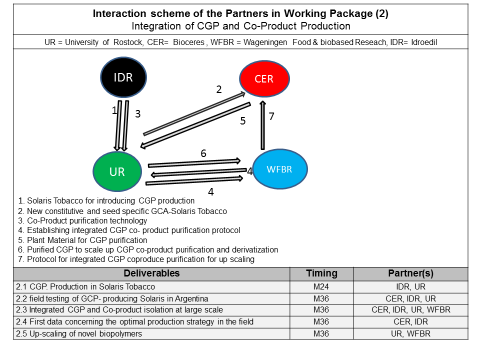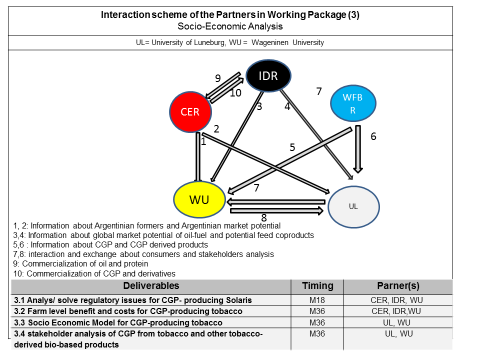The research modules are located on different levels (laboratory and field) and performed in different countries within the respective socio-economic frame. The interactions with stakeholders in different phases of the research process and within different socio-economic frames provide a multitude of experiences that can be harnessed to implement the project successfully. The project tasks are organised in three Work Packages (WP’s) focusing on:
1. Optimization of CGP production in existing CGP-producing tobacco varieties, efficient CGP isolation from tobacco and development of CGP application





